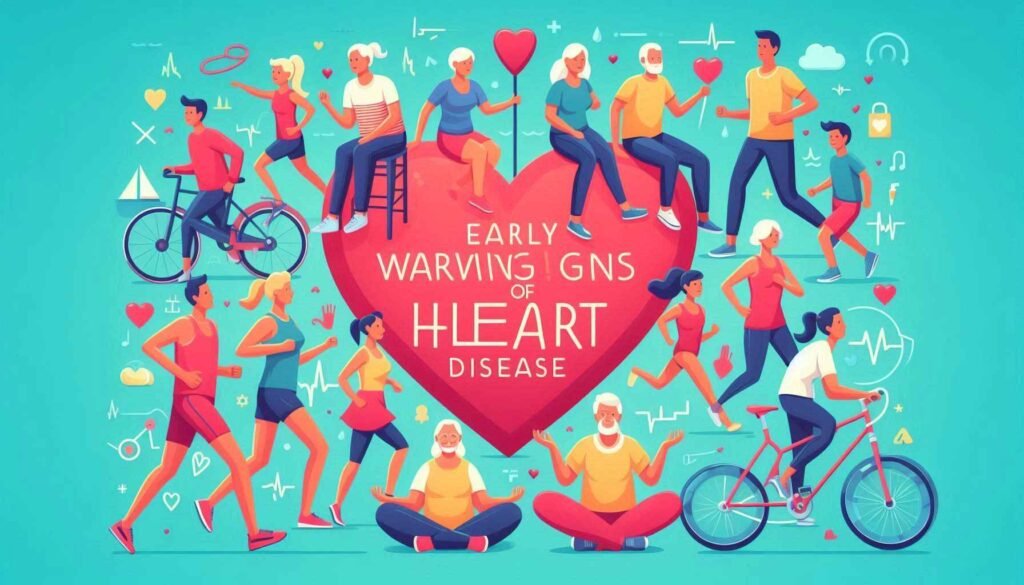
Alzheimer’s disease is a condition that many people have heard about but may not fully understand until they are directly affected. This progressive neurological disorder can change a person’s ability to function in daily life and affects millions of people worldwide. Early detection of Alzheimer’s is crucial because it can help individuals and families prepare for what’s ahead and make informed decisions about treatment and care.
In this post, we will explore the early signs of Alzheimer’s, what to look out for, and how to differentiate between Alzheimer’s symptoms and normal aging. Being informed could make all the difference in the quality of life for those affected by this condition.
Understanding Alzheimer’s Disease
Alzheimer’s disease is the most common cause of dementia, accounting for around 60-80% of cases. Dementia is an umbrella term for various conditions characterized by cognitive decline, but Alzheimer’s stands out for its specific pattern of progression and symptoms. It primarily affects memory, reasoning, and personality and ultimately makes it difficult for people to carry out daily activities.
One common misconception is that Alzheimer’s is a normal part of aging. While some memory changes are expected as people get older, Alzheimer’s involves much more severe changes. Understanding the early signs can help determine if you or a loved one might need medical evaluation.
1. Memory Loss that Affects Daily Life
Perhaps the most recognizable early sign of Alzheimer’s disease is memory loss, particularly when it disrupts daily life. This isn’t the usual forgetfulness like misplacing your keys every once in a while. In Alzheimer’s, the memory lapses are more serious and persistent. For example, a person may forget recently learned information, important dates, or events and ask the same questions repeatedly without realizing it.
Family members and friends may notice that the person starts to rely increasingly on memory aids, such as notes or electronic reminders, for things they used to remember easily.
2. Difficulty in Planning or Solving Problems
People in the early stages of Alzheimer’s might struggle with tasks that require concentration, especially if they involve numbers. This might manifest as difficulties in managing finances, balancing a checkbook, or following a recipe they’ve used for years. Problem-solving skills decline, and activities that involve sequential steps become overwhelming.
For example, they may take longer to do simple calculations or become confused when handling money. This issue can eventually become serious enough to hinder a person’s ability to make reasonable decisions.
3. Challenges in Completing Familiar Tasks
Completing everyday tasks becomes harder as Alzheimer’s progresses. This could mean struggling to drive to a familiar location, having trouble organizing household chores, or forgetting the rules of a favorite game. What once seemed like an automatic action—like using the microwave or making a cup of tea—now requires more effort, and sometimes the person forgets how to start or finish these tasks altogether.
4. Confusion with Time or Place
A common early symptom of Alzheimer’s is a frequent loss of track of time or place. Individuals might become confused about dates, the passage of time, or the current season. For example, someone might forget where they are or how they got there, even if they’re in a familiar location.
Disorientation is one of the most challenging symptoms because it can lead to potentially dangerous situations, such as wandering and getting lost.
5. Visual and Spatial Difficulties
Alzheimer’s doesn’t only affect memory; it can also impact vision. Individuals might have trouble judging distances, differentiating colors, or perceiving contrast, which can make driving particularly risky. They may bump into things more often or have difficulty reading. These problems are related to the brain’s ability to process visual information, which gradually diminishes as the disease progresses.
6. Trouble with Words in Speaking or Writing
People with Alzheimer’s may experience difficulty finding the right words during conversations or writing. They may struggle to follow or join a discussion, repeating themselves, pausing frequently, or using incorrect words. This can lead to frustration for both the individual and those trying to communicate with them.
It’s also common for people to stop participating in conversations due to their embarrassment over their increasing communication difficulties.
7. Misplacing Items and Losing the Ability to Retrace Steps
Everyone misplaces things from time to time, but an early sign of Alzheimer’s is misplacing items in unusual places and then being unable to retrace steps to find them. For instance, putting a wallet in the refrigerator or keys in the laundry basket. Worse still, people may start accusing others of stealing because they can’t find the items, which can become increasingly common as the disease progresses.
8. Poor Judgment and Decision-Making
Individuals with Alzheimer’s may experience a decline in their ability to make good decisions, whether that involves handling money, choosing what to wear, or knowing when to seek medical help. They may give large amounts of money to telemarketers or make choices inappropriate for the weather, such as wearing summer clothes in winter.
This kind of impaired judgment is different from making the occasional bad decision, which happens to everyone from time to time. Alzheimer’s-related decision-making issues are consistent and problematic.
9. Withdrawal from Work or Social Activities
Alzheimer’s can make people withdraw from hobbies, social activities, or work projects that they once enjoyed. They might feel embarrassed or uncomfortable about their symptoms, leading to isolation. For example, they might avoid book clubs because they cannot remember details or avoid social gatherings due to anxiety about their cognitive abilities.
10. Changes in Personality and Mood
Alzheimer’s can lead to noticeable changes in personality and mood, such as increased anxiety, depression, confusion, or suspicion. They may become easily upset in situations that are out of their comfort zone or exhibit a loss of interest in previously enjoyed activities.
Sometimes, Alzheimer’s causes an individual to act in ways that are unusual for their personality, like becoming aggressive, distrusting others, or experiencing more pronounced mood swings.
Causes and Risk Factors
The exact cause of Alzheimer’s is still not entirely understood, but it’s known to involve a mix of genetic, lifestyle, and environmental factors. Researchers believe that the disease is related to two main proteins in the brain: amyloid plaques and tau tangles, which cause brain cell damage and eventual death.
Risk factors for Alzheimer’s include:
- Age: The most significant known risk factor.
- Family History and Genetics: A higher risk if an immediate family member has the disease.
- Down Syndrome: Individuals with Down syndrome have an increased risk due to genetic factors.
- Traumatic Brain Injury: A history of head trauma can increase the likelihood of Alzheimer’s.
- Lifestyle and Heart Health: Factors like poor diet, lack of exercise, and smoking are linked to a higher risk.
Importance of Early Diagnosis
Early diagnosis can open up treatment options, including medications that help manage symptoms, and allow for better preparation for the future. Recognizing these early signs and consulting with a healthcare provider can also lead to a better quality of life through supportive therapies and lifestyle adjustments.
Tips for Caregivers and Loved Ones
For those who care for someone showing signs of Alzheimer’s, there are important steps to take:
- Encourage Medical Evaluation: Early intervention can make a difference.
- Promote Healthy Habits: Regular exercise, a balanced diet, and mental engagement can help slow cognitive decline.
- Create a Safe Environment: Simplify home tasks and ensure safety measures are in place to prevent wandering.
Conclusion
Recognizing the early signs of Alzheimer’s can be a game-changer for those affected and their families. If you notice any of these symptoms in yourself or a loved one, don’t ignore them. Seek a medical evaluation and begin a plan of action that supports health, safety, and quality of life.
While Alzheimer’s can be an intimidating diagnosis, awareness, and preparedness can help manage its impact effectively. Empower yourself and your loved ones with information, care, and compassion to navigate the challenges ahead.



